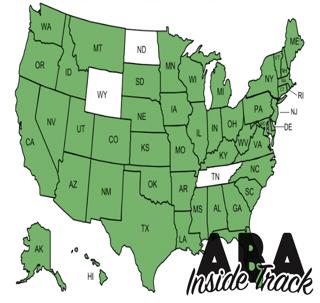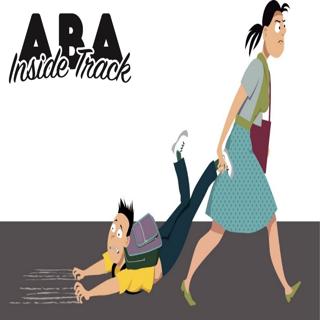
Episode 59 - Puppies!
Though Rob may prefer to hit PAWS when it comes to talking about canines, Jackie and Diana have a howling good time on this week's episode all about dog behavior and behavior analysis. Wondering how functional analysis methodology can be used to treat dog challenging behavior? Or how shelter workers can actually be taught to train dogs on the cheap? Curious if Rob writes little stories about the research articles he reads? We answer all three of these tough questions in this week's episode. We're such RUFF-ians. Articles discussed this episode: Feuerbacher, E.N. & Wynne, C.D.L. (2016). Application of functional analysis methods to assess human-dog interactions. Journal of Applied Behavior Analysis, 49, 970-974. doi: 10.1002/jaba.318 Howard, V.J. & DiGennaro Reed, F.D. (2014). Training shelter volunteers to teach dog compliance. Journal of Applied Behavior Analysis, 47, 344-359. doi: 10.1002/jaba.120 If you're interested in ordering CEs for listening to this episode, click here to go to the store page. You'll need to enter your name, BCBA #, and the two episode secret code words to complete the purchase. Email us at abainsidetrack@gmail.com for further assistance.
11 Jul 20181h 9min

Episode 59 Preview
To celebrate America's birthday, we're finally giving Jackie her wish and doing an entire episode devoted to puppies. Specifically, dog behavior analysis. After a montage of dog pictures featuring sad Sarah Mclachan music, dry your tears to prepare for some summer reading assignments in Errata. Do you have ideas for ABA Inside Track episodes? Email us! Articles for next episode: Feuerbacher, E.N. & Wynne, C.D.L. (2016). Application of functional analysis methods to assess human-dog interactions. Journal of Applied Behavior Analysis, 49, 970-974. doi: 10.1002/jaba.318 Howard, V.J. & DiGennaro Reed, F.D. (2014). Training shelter volunteers to teach dog compliance. Journal of Applied Behavior Analysis, 47, 344-359. doi: 10.1002/jaba.120
4 Jul 201817min

Bonus Episode 9 - Autism Insurance Reform w/ Amy Weinstock
Not a day goes by that the treatment and care for children with autism and their families isn't in the news. Sadly, many recent headlines have focused on the alarming challenges that these families face in looking for effective treatment (i.e., ABA) even with the sweeping changes to insurance coverage of autism treatment signed into law in nearly all the U.S. Luckily, we had an amazing opportunity to speak to Amy Weinstock of the Autism Insurance Resource Center about this and other topics related to insurance for autism treatment including a discussion of her important role in bringing this legislation to Massachusetts, her ongoing work to support families in understanding their rights under the law, and what all BCBAs need to know about insurance. And if you still have more questions after listening, why not contact the awesome people at the Autism Resource Center yourself?
27 Jun 201832min

Episode 58 - School Refusal Behavior
Ah, the beautiful summer weather is finally upon us. And what better time to talk about how hard it is for some students to attend school. Is it bad teaching? Permissive parents? School anxiety? How the heck are we supposed to find out the function of school refusal behavior? Fortunately, Dr. Christopher Kearney and colleagues have been studying the assessment and treatment of school refusal behavior since the early 90's. And your pals here at ABA Inside Track are here to disseminate their research with our brand of deep discussion and tangents about Jackie's history of poor attendance due to Sailor Moon. Articles for next episode: Kearney, C.A. & Silverman, W.K. (1990). A preliminary analysis of a functional model of assessment and treatment for school refusal behavior. Behavior Modification, 14, 340-366. doi: 10.1177/01454455900143007 Kearney, C.A., Pursell, C., & Alvarez, K. (2001). Treatment of school refusal behavior in children with mixed functional profiles. Cognitive and Behavioral Practice, 8, 3-11. doi: 10.1016/S1077-7229(01)80037-7 Kearney, C.A., Chapman, G., & Cook, L.C. (2005). Moving from assessment to treatment of school refusal behavior in youth. INternational Journal of Behavioral Consultation and Therapy, 1, 46-51. Kearney, C.A. (2008). School absenteeism and school refusal behavior in youth: A contemporary review. Clinical Psychology Review, 28, 451-471. doi: 10.1016/j.cpr.2007.07.012 If you're interested in ordering CEs for listening to this episode, click here to go to the store page. You'll need to enter your name, BCBA #, and the two episode secret code words to complete the purchase. Email us at abainsidetrack@gmail.com for further assistance.
20 Jun 20181h 34min

Episode 58 Preview
So, when does, "Mommy, I don't wanna go to school" move beyond a frustrating way to start the day to a serious problem? Next week, we're talking all about the phenomenon of school-refusal behavior and what you can do to help. In the meantime we bring up some life-affirming quotes and get a glimpse at Rob's most prized possession. Articles for next episode: Kearney, C.A. & Silverman, W.K. (1990). A preliminary analysis of a functional model of assessment and treatment for school refusal behavior. Behavior Modification, 14, 340-366. doi: 10.1177/01454455900143007 Kearney, C.A., Pursell, C., & Alvarez, K. (2001). Treatment of school refusal behavior in children with mixed functional profiles. Cognitive and Behavioral Practice, 8, 3-11. doi: 10.1016/S1077-7229(01)80037-7 Kearney, C.A., Chapman, G., & Cook, L.C. (2005). Moving from assessment to treatment of school refusal behavior in youth. INternational Journal of Behavioral Consultation and Therapy, 1, 46-51. Kearney, C.A. (2008). School absenteeism and school refusal behavior in youth: A contemporary review. Clinical Psychology Review, 28, 451-471. doi: 10.1016/j.cpr.2007.07.012
13 Jun 201815min

Episode 57 - Do Humans Prefer Contingencies?
This week we're researching the age-old question: Will I be happier by doing stuff or just waiting for the world to reward me? In behavioral terms, we're discussing whether humans prefer contingent or noncontingent reinforcement. After going over two excellent research articles exploring this question through the use of the ever-popular concurrent-chains procedure, Jackie and Diana expose their crazy, right-wing politics to assess the U.S. welfare system while our favorite liberal progressive, Rob, watches in horror. Articles discussed this episode: Luczynksi, K.C. & Hanley, G.P. (2009). Do children prefer contingencies? An evaluation of the efficacy of and preference for contingent versus noncontingent social reinforcement during play. Journal of Applied Behavior Analysis, 42, 511-525. doi: 10.1901/jaba.2009.42-511 Hanley, G.P., Piazza, C.C., Fisher, W.W., Contrucci, S.A., & Maglieri, K.A. (1997). Evaluation of client preference for function-based treatment packages. Journal of Applied Behavior Analysis, 30, 459-473. doi: 10.1901/jaba.1997.30-459 If you're interested in ordering CEs for listening to this episode, click here to go to the store page. You'll need to enter your name, BCBA #, and the two episode secret code words to complete the purchase. Email us at abainsidetrack@gmail.com for further assistance.
6 Jun 20181h 15min

Episode 57 Preview
You enter a hall full of all of your favorite things. The old knight of the Crusade beckons you to him. "Among you are the greatest delights known to humanity. You may engage in whip-cracking tricks to earn them. Or, I can give you one every now and again. You must choose...but choose wisely." And in that moment, you realize: you should have listened to that episode of ABA Inside Track about whether humans prefer contingencies. Suddenly, you awaken in a cold sweat and look at the calendar. "Oh, thank Skinner," you gasp. "It's only the preview episode! There's still time to subscribe!" Then, with visions of Diana, Jackie, and Rob podcasting in your head, you slip off, back to dreamland. Articles for next episode: Luczynksi, K.C. & Hanley, G.P. (2009). Do children prefer contingencies? An evaluation of the efficacy of and preference for contingent versus noncontingent social reinforcement during play. Journal of Applied Behavior Analysis, 42, 511-525. doi: 10.1901/jaba.2009.42-511 Hanley, G.P., Piazza, C.C., Fisher, W.W., Contrucci, S.A., & Maglieri, K.A. (1997). Evaluation of client preference for function-based treatment packages. Journal of Applied Behavior Analysis, 30, 459-473. doi: 10.1901/jaba.1997.30-459
30 Mai 201811min

Episode 56 - Behavioral Gerontology
This week we're running the gamut of issues facing older adults with dementia. We've got an article about hoarding items, an article about running a functional analysis, and an article about making people feel happy. Spoiler alert: ice cream shops are an evidence-based way to bring joy. But we could have told you that. Articles discussed this episode: Donaldson, J.M., Trahan, M.A., & Kahng, S. (2014). An evaluation of procedures to increase cooperation related to hoarding in an older adult with dementia. Journal of Applied Behavior Analysis, 47, 410-414. doi: 10.1002/jaba.112 Trahan, M.A., Donaldson, McNabney, M.K., & Kahng, S. (2014). The influence of antecedents and consequences on the occurrence of bizarre speech in individuals with dementia. Behavioral Interventions, 29, 286-303. doi: 10.1002/bin.1393 Moore, K., Delaney, J.A., & Dixon, M.R. (2007). Using indices of happiness to examine the influence of environmental enhancements for nursing home residents with Alzheimer's disease. Journal of Applied Behavior Analysis, 40, 541-544. doi: 10.1901/jaba.2007.40-541 If you're interested in ordering CEs for listening to this episode, click here to go to the store page. You'll need to enter your name, BCBA #, and the two episode secret code words to complete the purchase. Email us at abainsidetrack@gmail.com for further assistance.
23 Mai 20181h 32min






















